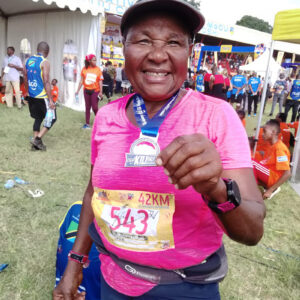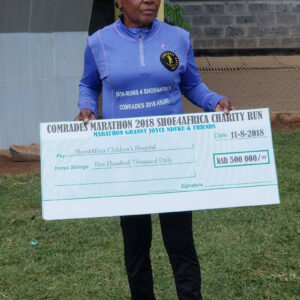For decades now, Kenya has consistently dominated the world in competitive middle and long-distance running. Yet, despite producing world champions, the country has failed to cultivate a recreational running culture.
Yet, while stories of Africa’s elite runners are ubiquitous, very little is known of the continent’s vibrant recreational running community, in the last 10 years has exploded in membership, inclusivity, variety and ambition.
Except for South Africa which has become an outlier, in the rest of the continent, running is not considered a sport that one can engage in non-competitively as an effective way to maintain a healthy lifestyle, lose weight or deal with stress.
The belief that one can only run to get paid has become such deeply entrenched conventional wisdom that despite the spring up of leisure running clubs within Nairobi and in other major cities in the country with local races organised every other weekend, the tide is yet to turn.
So what is recreational running, what separates it from elite/competitive running, and why is it one of the cheaper, easier and more effective forms of fitness exercises?
What is recreational running?
As the name suggests, this is fun or leisurely running. Although it in itself, sets apart anyone who takes up the sport for competitive reasons, there are some things that elite and recreational runners have in common.
Whichever type of running you do, you have to adhere to the running basics, a proper running mechanism and in some instances (when preparing for a marathon), an appropriate diet.
Jogging vs Running, is there a difference?
What about jogging, some might ask. Is there a difference between that and running? According to Asics, there are some important differences between the two regarding pace, form and physical exertion. Interestingly, as the article notes, running and jogging both engage the same muscles and the health benefits are similar.
Why most are drawn to running?
When the COVID-19 pandemic hit the country in 2020, Gyms and other sports & fitness facilities including most public spaces were closed. For many, running became the most practical and safe alternative. It not only helped many to keep fit, but it also became a way to retain our sanity whilst we grappled with so much uncertainty.
As Munyaka Njiru- an adventure consultant and the chairman of the Wakimbizi running club pointed out, His club together with Urban Swaras, Team Jasho, Run Beyond and many other Nairobi-based clubs have seen a surge in numbers from 2020.
Speaking to a few of these new recreational runners, a common thread weaved through their affinity to the sport. To summarize;
- Unlike other sports, you don’t need a partner
- It’s less expensive as the only major investment is a pair of good running shoes.
- You can do it anywhere wherever you are whether at home or travelling
- There are fewer barriers, you can just wake up and run
- You can do it any time of the day- morning, lunchtime, evening, even at night if you live in a safe neighbourhood
- It’s a great way of exploring the outdoors and unwinding
I also caught up with Joyce Nduku popularly known as Tata the marathon granny. She began running in 2004 when she turned 50 and has become one of Kenya’s foremost recreational running advocates.
“ The simplicity and ease of getting started are what draw many to running.” She tells me.” Unlike many other sports, all you need is a good pair of shoes and you are good to go”.
Her statement resonates with many of the recreational runners that I have interacted with. Many, if not all are motivated either by the need to keep healthy, improve their image, manage stress, or just explore the outdoors.
We’d love to hear from you. If you run, tell us in the comments section what drew you to running. If you don’t, we’d also love to hear how you keep fit and some of the reasons that have kept you from taking up running.

